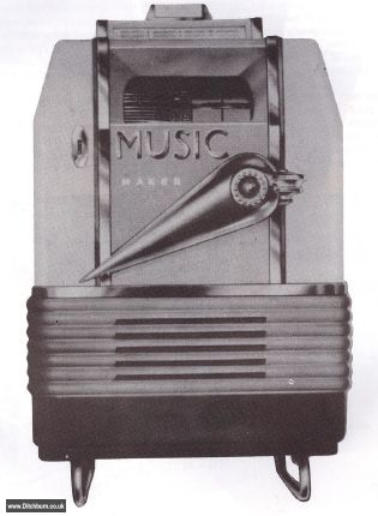
Photo Ref: DB069
1946 The Hawtin’s Novelty Company
During
the
2nd
world
war,
engineering
companies
in
the
UK
had
been
making
munitions
and
military
equipment,
one
of
the
many
companies
that
did
this
was
the
Hawtin’s
Novelty
Company
in
Blackpool,
In
the
war
years
the
factory
was
turned
over
to
the
production
of
aircraft
parts
for
the
war
effort,
the
enterprise
was
owned
by
brothers
Frank
and
Percy
Hawtin,
Frank
had
started
the
company
in
1922
making
wall
machines
for
seaside
amusement
arcades
and
also
larger
floor
standing
machines
in
later
years,
Frank
had
started
the
business
from
a
small
premises
at
17
Livingstone
Road
in
Blackpool,
Between
1922
and
1947
the
company
grew
from
the
small
workshop
to
a
modern
three
and
a
half
acre
factory
at
Marton,
Blackpool,
employing
hundreds
of
skilled
engineers.
Jack
Hylton
did
not
have
any
manufacturing
or
engineering
experience,
so
he
turned
to
Hawtin’s
to
assist
him
in
producing
his
British
built
Juke-
Box.
Hawtin’s
experience
in
the
amusement
industry
and
the
manufacturing
knowledge
obtained
from
making
high
quality
military
parts
was
important
in
producing
a
reliable
and
stylish
machine,
Unfortunately
due
to
the
rationing
of
many
materials
at
this
time
it
was
practically
impossible
to
make
a
Juke
box
with
the
few
materials
that
were
currently
available. Fortunately Jack Hylton’s contacts in the U.S. air-force could help them get around that.
You can read more about Frank Hawtin on the people page
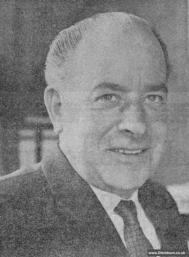
Frank Hawtin
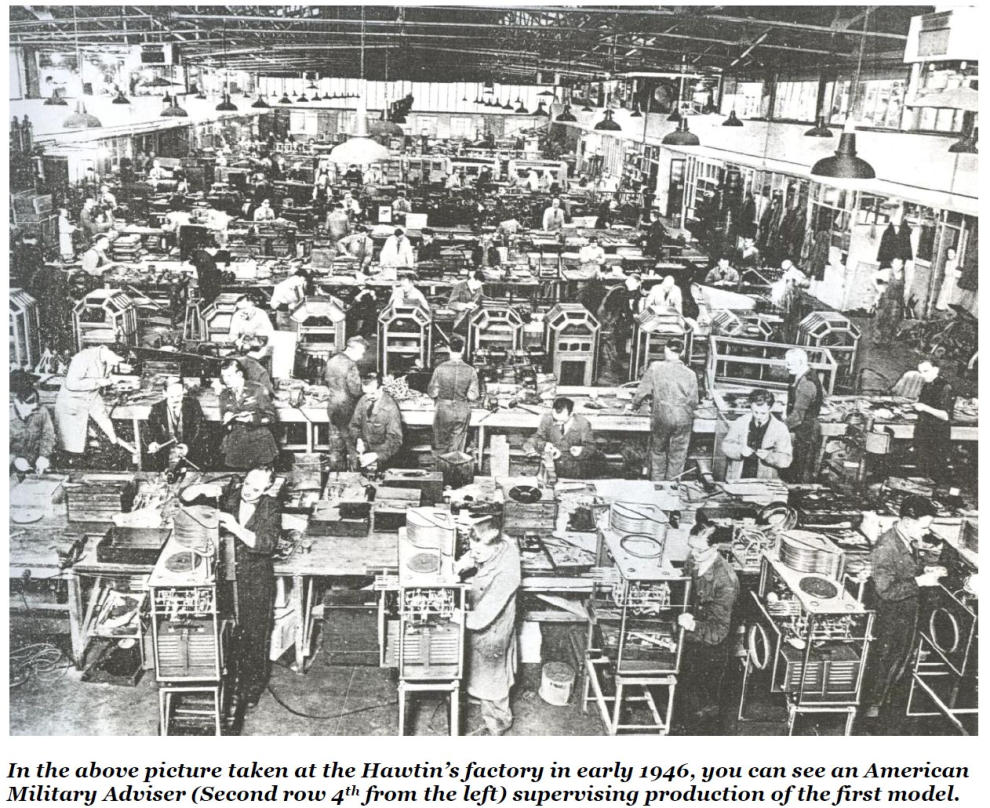
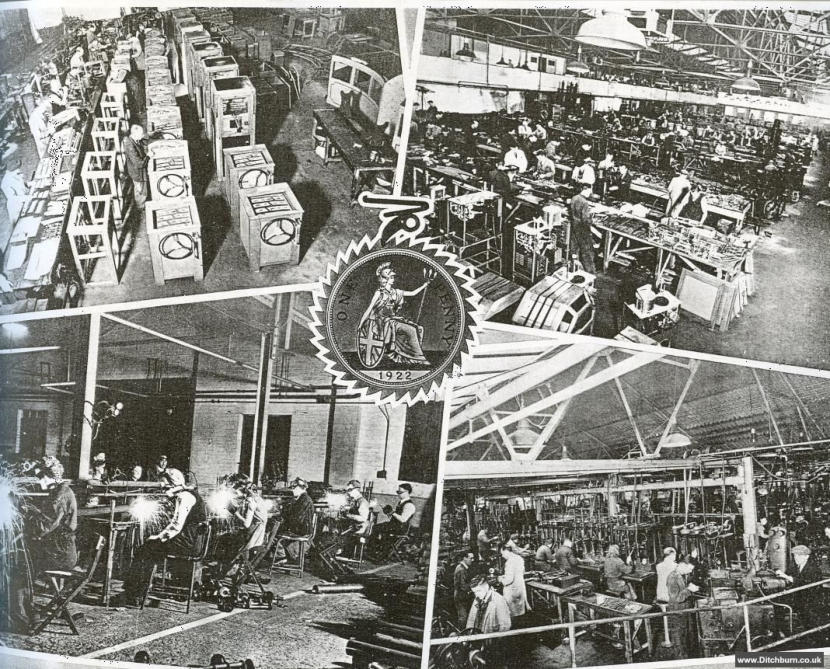
Hawtin’s Novelty Co. at the Preston New Road factory in Blackpool in 1946.
note: the top right photo showing the “Jack Hylton Music Maker” Jukebox Production
Photo Ref: DB070 Courtesy of Freddy Bailey
J
ack
Hylton’s
connections
with
the
US
air-force
were
able
to
bypass
the
UK
government
restrictions
on
importing
non-essential
items,
and
parts
for
Juke-boxes
would
have
definitely
been
classed
as
non-essential,
although
we
are
sure
that
circumventing
UK
government
regulations
was
not
exactly
legal
at
the
time,
most
of
these
machines
when
completed
would
be
sited
on
American
Air-Force
bases
to
entertain
the
US
troops,
so
it
was
in
their
best
interest
to
make
sure
this
all
went
without
a
hitch.
The
78RPM
Wurlitzer
Simplex
mechanisms
were
shipped
in
wooden
crates
from
the
USA,
these
were
transported
on
American
supplies
aircraft
directly
to
the
American
air-force
bases
and
then
shipped
to
the
Hawtin’s
factory
under
strict
US
military
supervision,
the
crates
were
rumored
to
be
marked
up
as
“Essential
American
Supplies”.
the
crates
were
also
an
important
part
of
the
delivery
as
they
were
made
from
quality
American
oak,
and
these
packing
crates
were
then
dissembled
by
experienced
joiners
and
then
hand
crafted
into
the
polished wooden cabinet of the Juke-box.
Photo Ref: DB071 Courtesy of Freddy Bailey
Photo Ref: DB086 Courtesy of Ronnie Garside
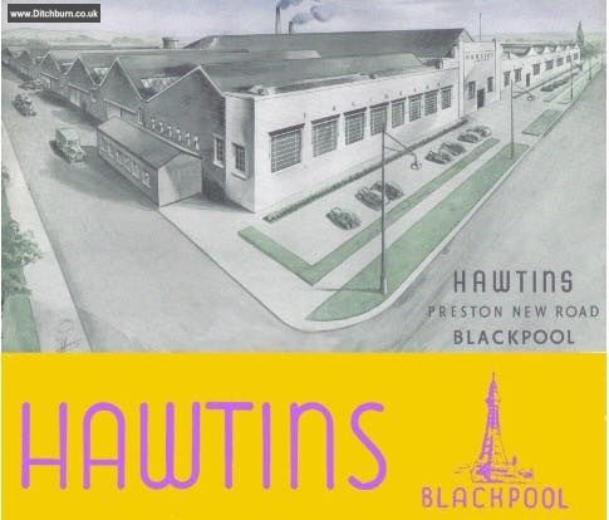
I
t
was
around
the
end
of
1946
that
the
sales
of
the
new
Juke
Box
were
not
what
as
expected
and
the
cost
to
manufacture
were
very
high,
The
wooden
cabinet
of
the
Mk1
was
criticised
by
the
public
as
being
something
from
the
1930s
and
not
in
keeping
with
the
modern
times,
so
they
decided
to
use
a
respected
artist
to
design
a
new
futuristic
cabinet, that had a sleeker modern styling (The MK2)
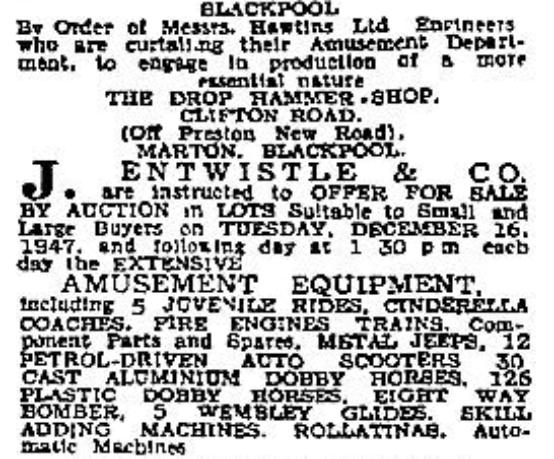
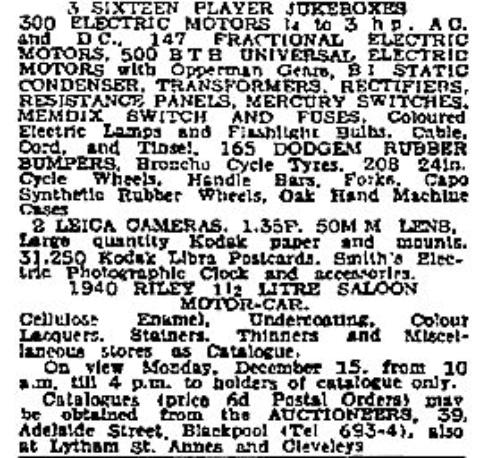
Photo Ref: DB091 Courtesy of britishnewspaperarchive.co.uk
After
the
Sale,
Frank
and
his
Brother
Percy
moved
onto
bigger
and
better
things,
their
first
business
venture
was
into
“False
Teeth”,
something
that
had
been
greatly
missed
by
many
people
during
the
war,
in
1949
the
Blackpool
factory
at
Marton
was
fully
utilized
with
their
company,
Anglo-American
Dental
Corporation,
maker
of
acrylic
teeth,
they
both
became
millionaires,
by
1968
they
had
formed
Hawtin
Industries
and
had
a
large
portfolio
of
companies,
also
1968
Frank
Hawtin
was
chairman
of
Dental
Manufacturing
Co.
again
in
1968
they
acquired
Park
Brothers
of
Blackburn,
an
auto
electrical
company,
by
1969
the
main
activities
of
Hawtin’s
were
manufacturing
agricultural
machinery,
and
automotive
products,
they
also
owned
Cheswick
and
Wright
a
car
silencer
company,
and
then
they
acquired
Metropole
Enterprises
who’s
main
divisions
were
engineering,
building
and
construction,
they
also
acquired
Cussins
(Contractors),
a
house
building
company,
and
general
contractors,
then
a
partial
takeover
of
Rawlings
Brothers,
a
building
and
electrical
contractor.
they
also
acquired
a
majority
interest
in
Joylock
Ltd,
a
property
developer
of
South
Wales. and by 1970 they were merchant bankers offering financial services.
A long way from the days of making amusement machines in a small workshop at 17 Livingstone Road.
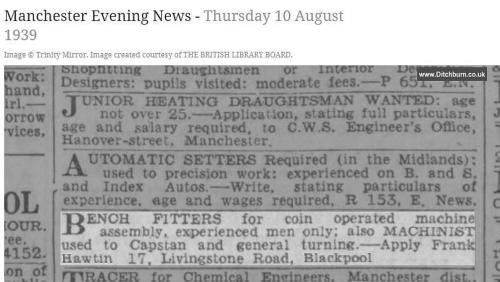
Photo Ref: DB009 Courtesy of britishnewspaperarchive.co.uk
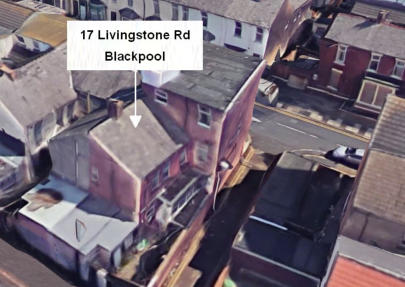
Photo Ref: DB095
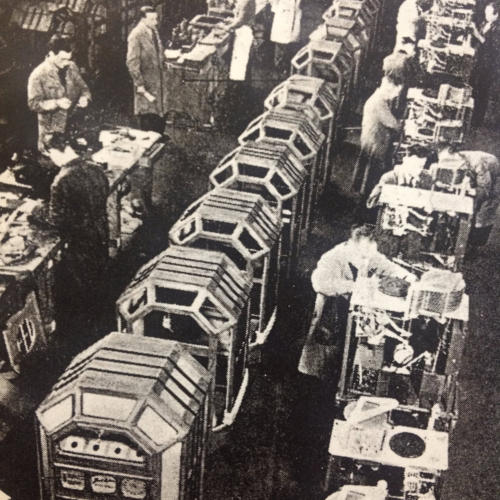
Photo Ref: DB168 Courtesy of Tony Holmes






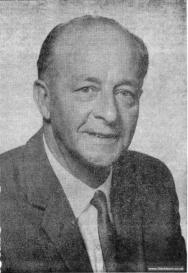
Percy Hawtin
Photo Ref: DB410
It
was
around
mid
1946
that
there
was
a
big
fall
out
with
Jack
Hylton
and
the
Hawtin’s
brothers,
it
seems
they
parted
company
and
the
Hawtin’s
brothers
were
left
holding
the
baby,
Hawtin’s
stopped
producing
the
MK1
Jukebox
and
removed
Hylton’s
name
from
the
MK2
and
any
advertising
literature.
It
was
at
this
point
that
the
Hawtin’s
brothers
did
not
think
that
Jukeboxes
were
the
next
big
thing
(
how
wrong
they
were
)
Frank
Hawtin
had
set
his
sights
on
bigger
and
better
things,
he
decided
to
get
out
of
the
amusement
machine
business
all
together
to
concentrate
on
building
a
bigger engineering empire,
It
was
at
this
point
that
the
Hawtin’s
brothers
met
with
Geoffrey
Norman
Ditchburn
and
deal
was
struck
to
sell
the
Jukebox business. Ditchburn took over the premises at Marton Road Blackpool later that year
The
Jukebox
manufacturing
and
tooling
for
the
MK2
Jukebox
was
sold
to
Ditchburn,
and
the
rest
was
to
be
auctioned
off
on
in
a
large
sale
on
December
the
16th
1947.
in
the
auction
advertisement
below
it
shows
that
it
included
three
16
player Jukeboxes, it is very likely that these were the Mk1 Jack Hylton Models.
